Mental gymnastics with conversation as the end goal
Temperatures are slowly falling and the holidays are over. But cosy moments with the family don’t have to suffer due to iPads and TV.
Brain researchers agree that games develop the brain to a far greater degree than passive screen time does. All the senses are stimulated, and language skills will automatically grow in conversation about these games. The goal is neither to win the gold nor to come first ‒ the goal is conversation, and the reward is improved language.
1. A suitcase filled with dialogue and opposites
Kids love suitcases. Big suitcases and little suitcases and everything that can be hidden inside of them make for a treasure trove of activity. Plus, I also love suitcases because they are convenient for storage!
The memory game contains 24 bricks in a nice cardboard with (beautiful) animal motifs. The task is to match opposites, which particularly improves the vocabulary. Memory games and matching games are a hit with 3-year-olds, but the slightly younger and the slightly older can also easily join in.
Differences – how are they different?
Use the cards in the flip game to talk about the differences between two opposites, – e.g. awake/asleep: When are you awake? When are you asleep? What do you do at night? What does your child do during the day? How can you see whether it’s night or day, etc?
Buy the memory game with opposites here
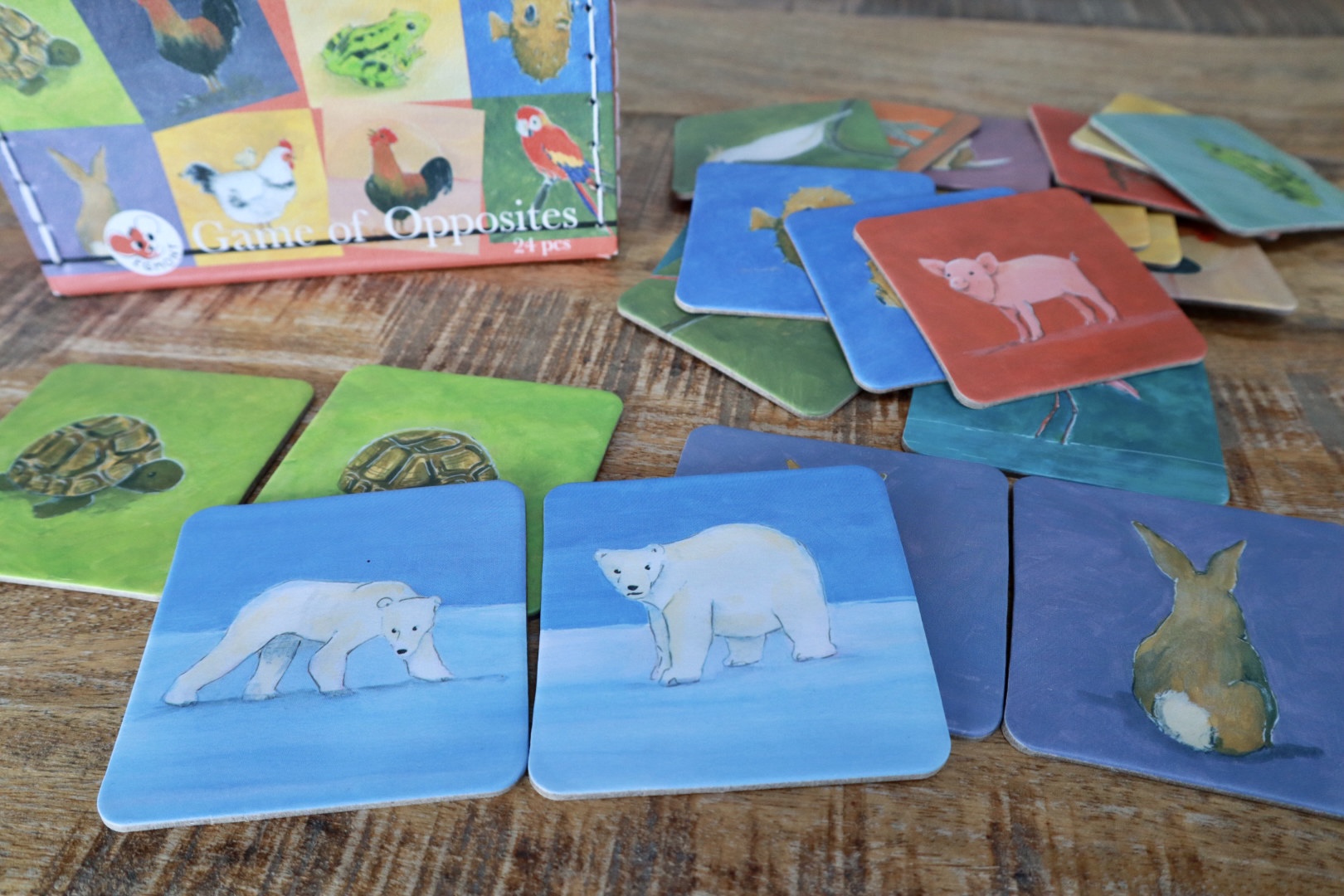
2. Functional understanding – What is it?
Yes, that’s a good question. The observation game from Vilac “What’s this?” is a real family game that improves exactly this skill in your child’s language development.
Functional understanding is the knowledge of what things are used for, and this game is an opportunity to develop and expand your child’s knowledge of many different things. It strengthens both their vocabulary with lots of nouns and lends itself to many conversations about shapes and colours.
The game can be used in a myriad of ways. The child is asked the question “What’s this”, based on a motif card. It isthen the child’s task to recreate the motif from the card using the geometric bricks, after which the others have to guess what it is.
You can set a timer or use the bricks (and cards) in other creative ways. Find some of the many play ideas here.
Buy the “What is this?” game from Vilac
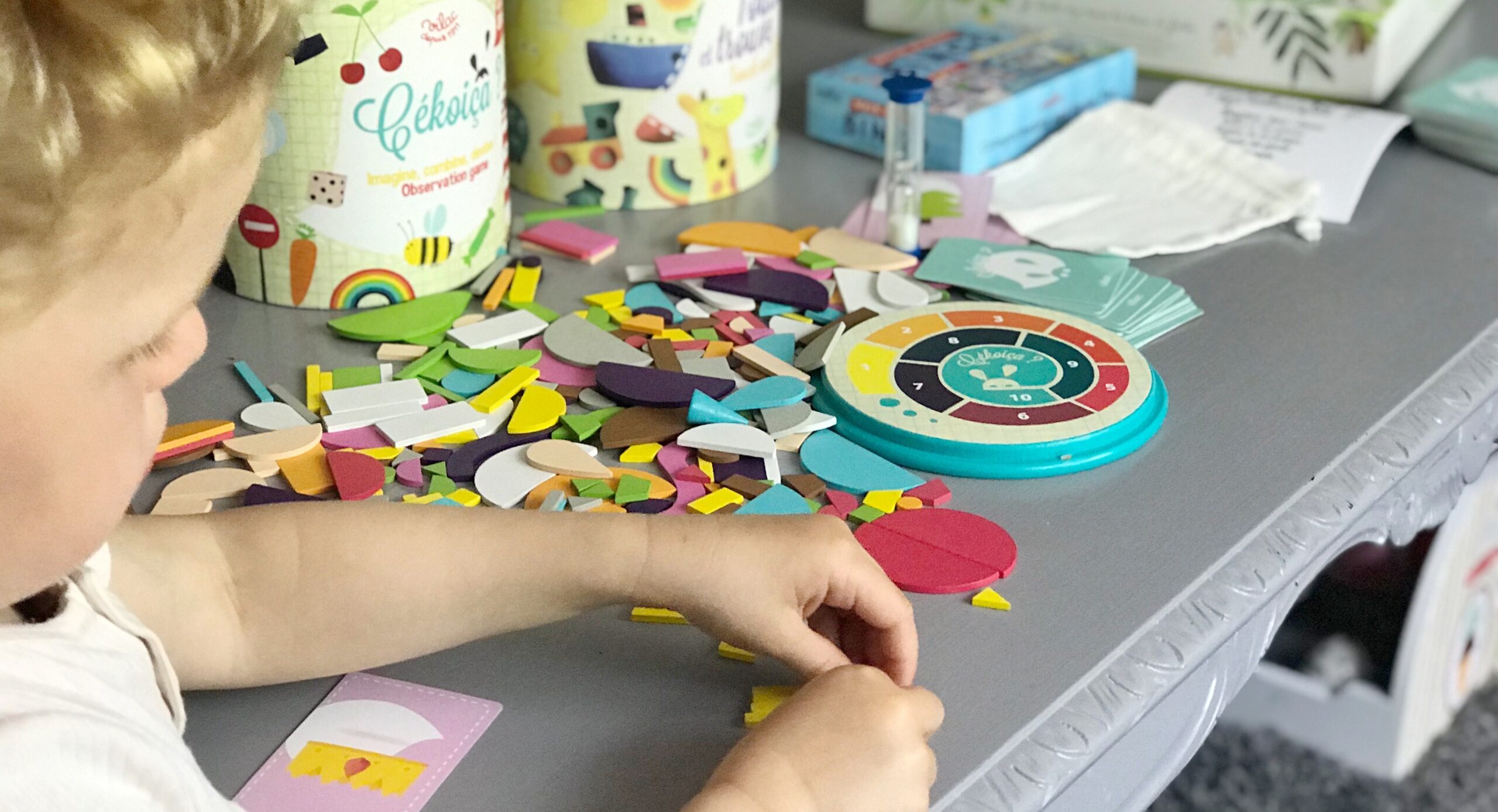
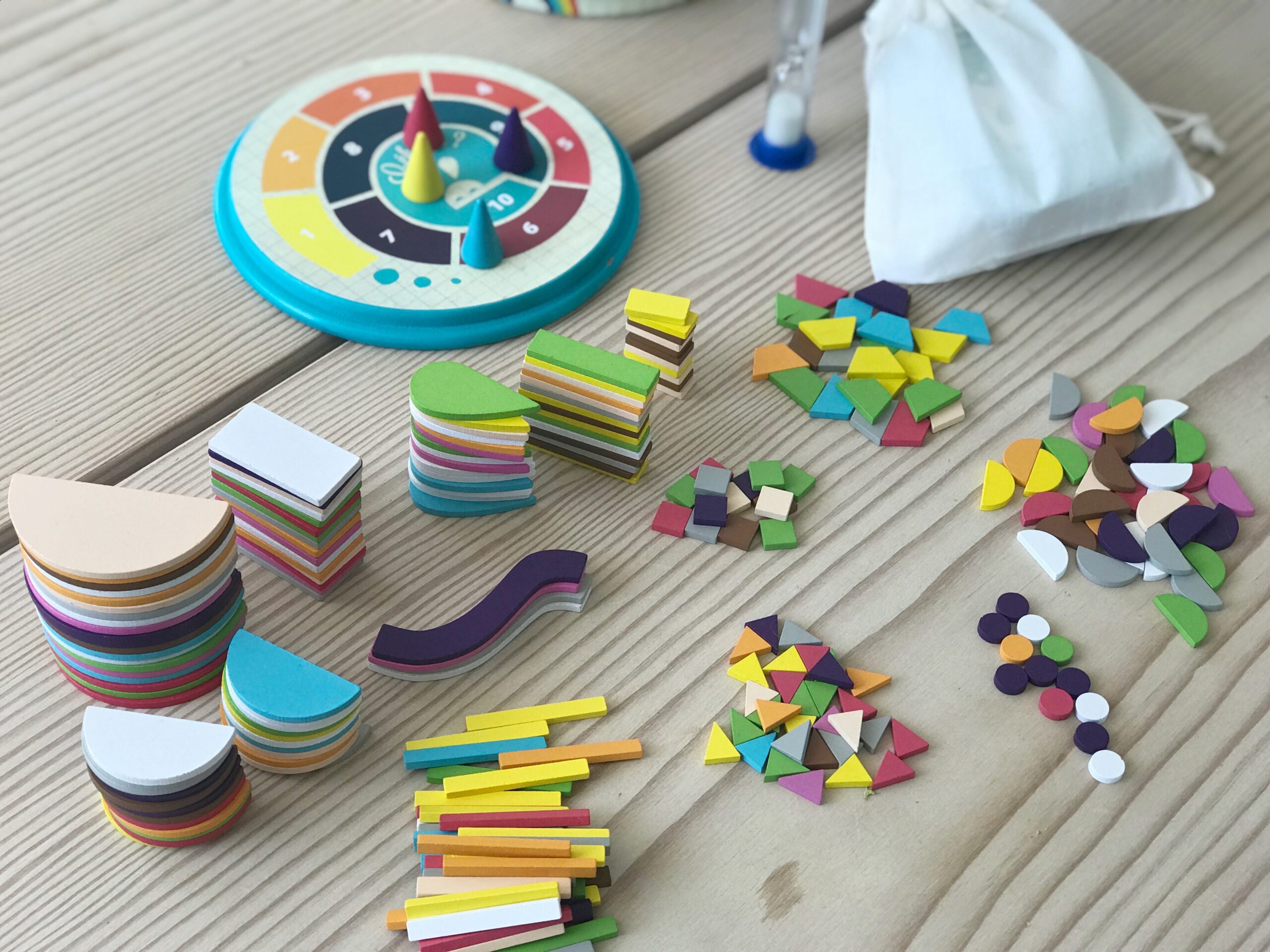
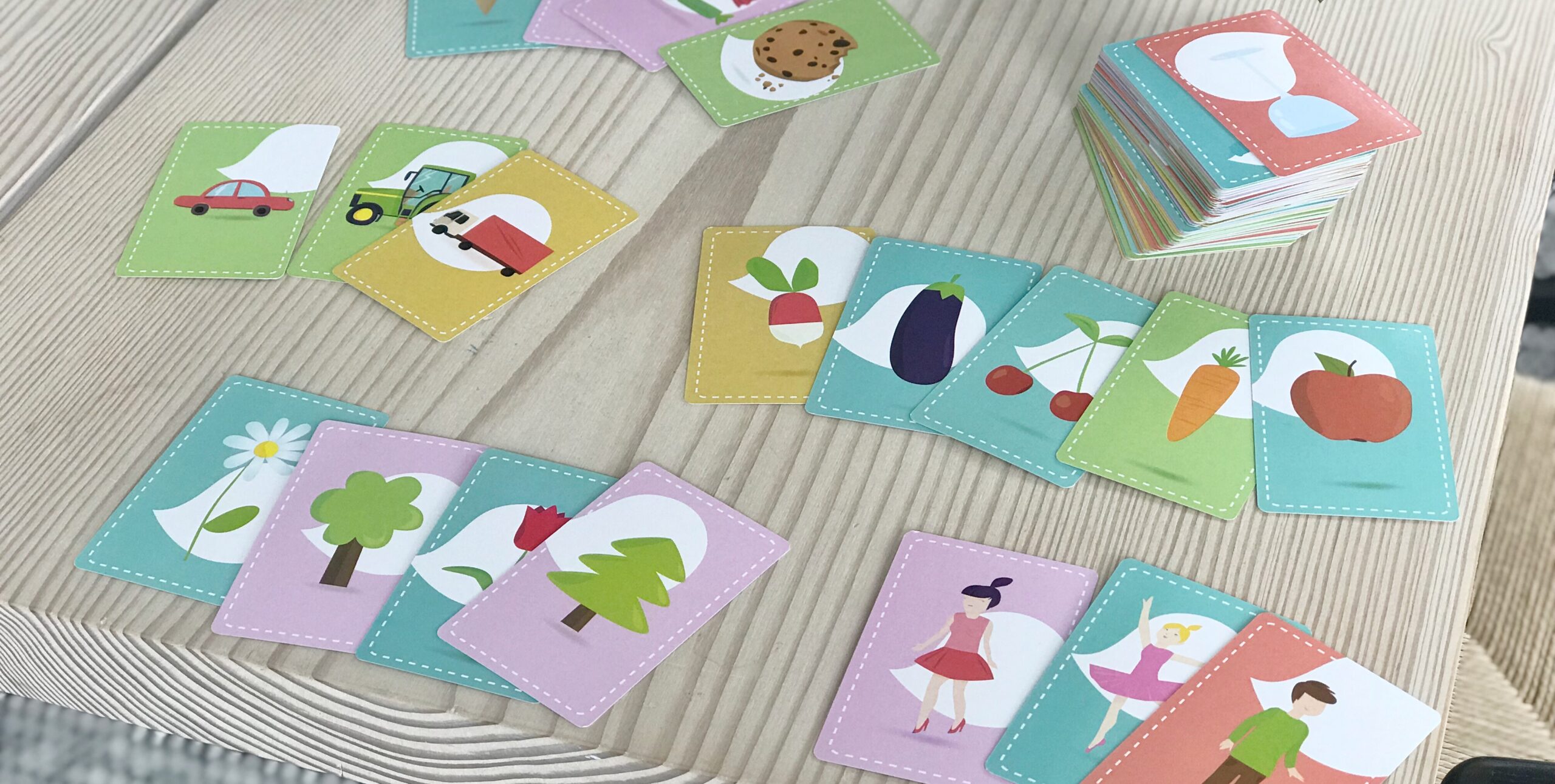
3. “Before and after” game
This game improves numerous skills that help your child gain a greater understanding of life around them, and how some actions follow a certain order.
At the age of 3-4, the child begins to experiment with grammatical endings and past tense forms. Even though it isn’t all quite in place yet, the child is practicing and making lots of mistakes. But don’t correct them, because it will probably fall into place when the child is ready.
A game like “before and after” is an ingenious game to promote logical thinking while the child practices grammatical endings and their understanding of time. The aim of the game is to match two pieces that show an activity before and after. Your child will automatically have to formulate sentences and practice verbs in different tenses as they make matches and describe what’s happening in the two pictures to explain why they belong together.
Talk about what the animals are doing in the pictures and what they might be thinking about – this helps to develop their storytelling skills, theory-of-mind* and creativity. The game can do much more and also lends itself to conversationabout everyday situations. These conversations about activities that take place in a certain order will help your child predict situations that arise in everyday life.
Buy the “Before and after” game here
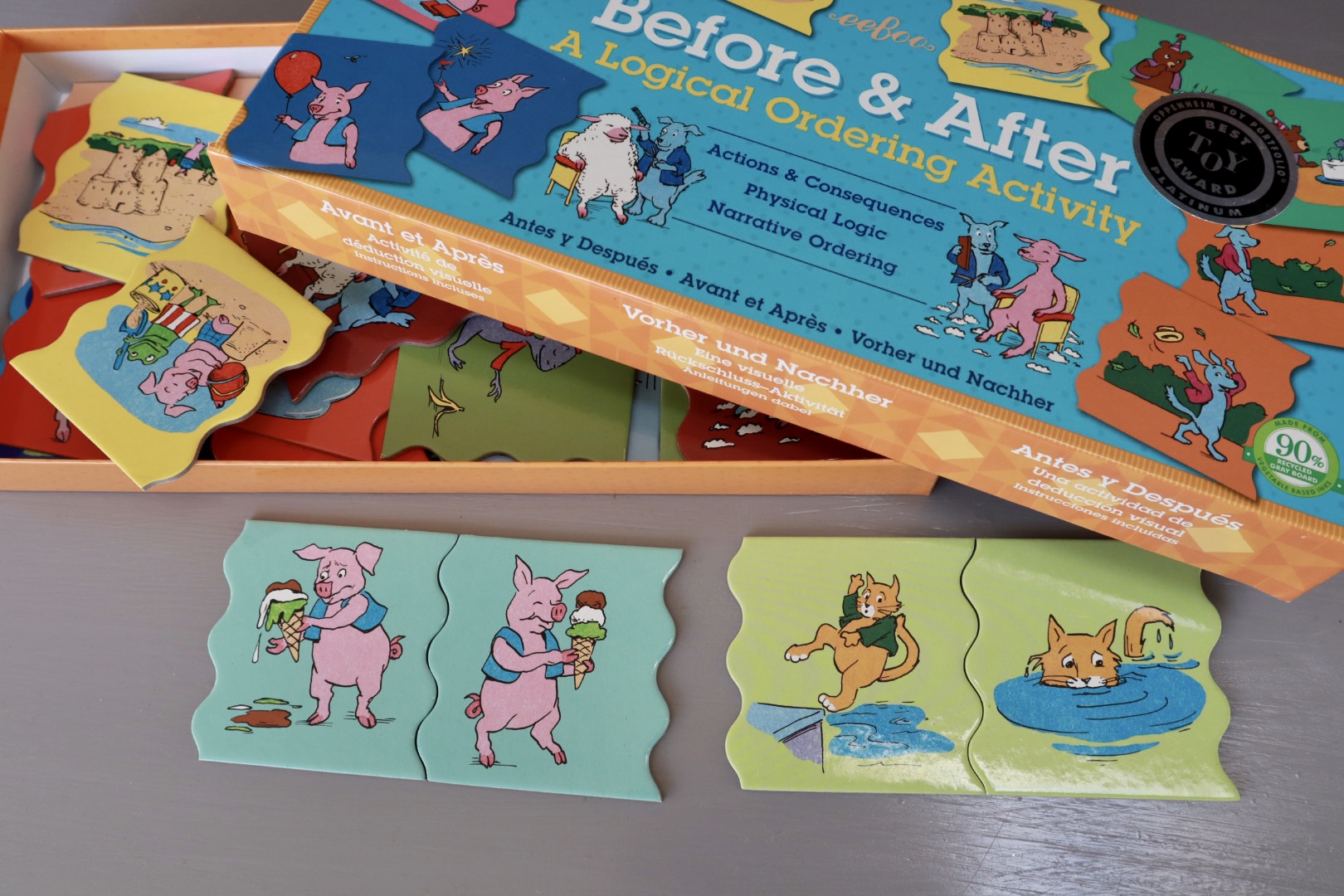
4. Dialogue about emotions
All my emotions – inside and out is a new board game that, in a playful way, supports the child’s emotional development. The game provides a fun and cozy gaming experience while the whole family, children and adults, practice talking about and feeling their emotions – both the nice and the difficult.
In addition to creating a present family moment, the goal of the game in the long run is that it helps to create a family culture where it is natural to talk about the feelings you experience in everyday life. The game can help the adults around the child talk about emotions, which is something many find difficult and a bit taboo. It is very important to talk to children about emotions as the emotional development does not happen by itself. Emotions, like language and motor skills, must be stimulated to develop and “grow”, so that our children grow up with the best conditions for developing a balanced emotional life and a stable self-esteem.
The game supports both the acquisition of a language for emotions and the understanding of emotions – in oneself and others. All of this can make the game sound very complicated, but it is not! It comes with a simple game guide, and it can be played with children from about 3 years and up
You can buy the game here
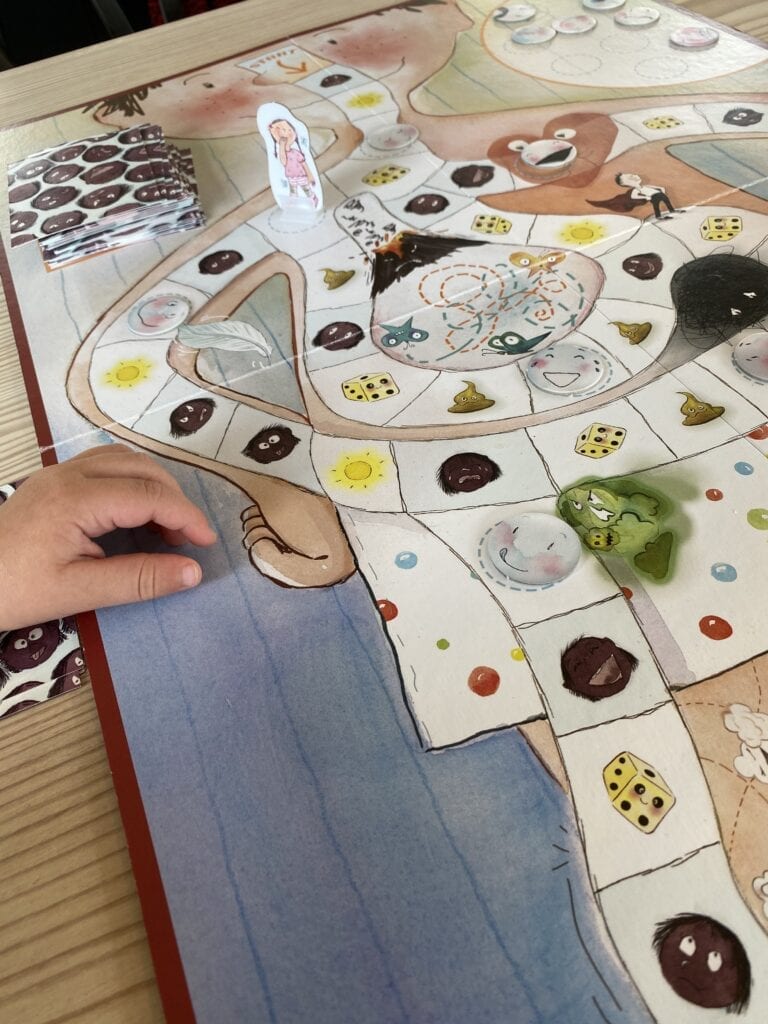
Games are a great way to stimulate language
Games are an excellent way to spend attentive, quality time with your child. They’re a good, cosy alternative to screen time and, like storytelling, improve the relationship between children and their parents. Most children can actually participate in more games than we might think. Although the games here are for different ages, you can use playing cards and bricks in many more ways than they are intended for and across ages. Language is strengthened through play- so there are no losers!
* The ability to create “perceptions of oneself and of others as well as one’s own and others’ thoughts, feelings, intentions, mental states and the like.”…. “- to be able to form a theory or an understanding that other people’s actions and ways of reacting originate from and can be understood on the basis of their thoughts, perceptions, feelings, motives and so on. “(Lose: 147). Source
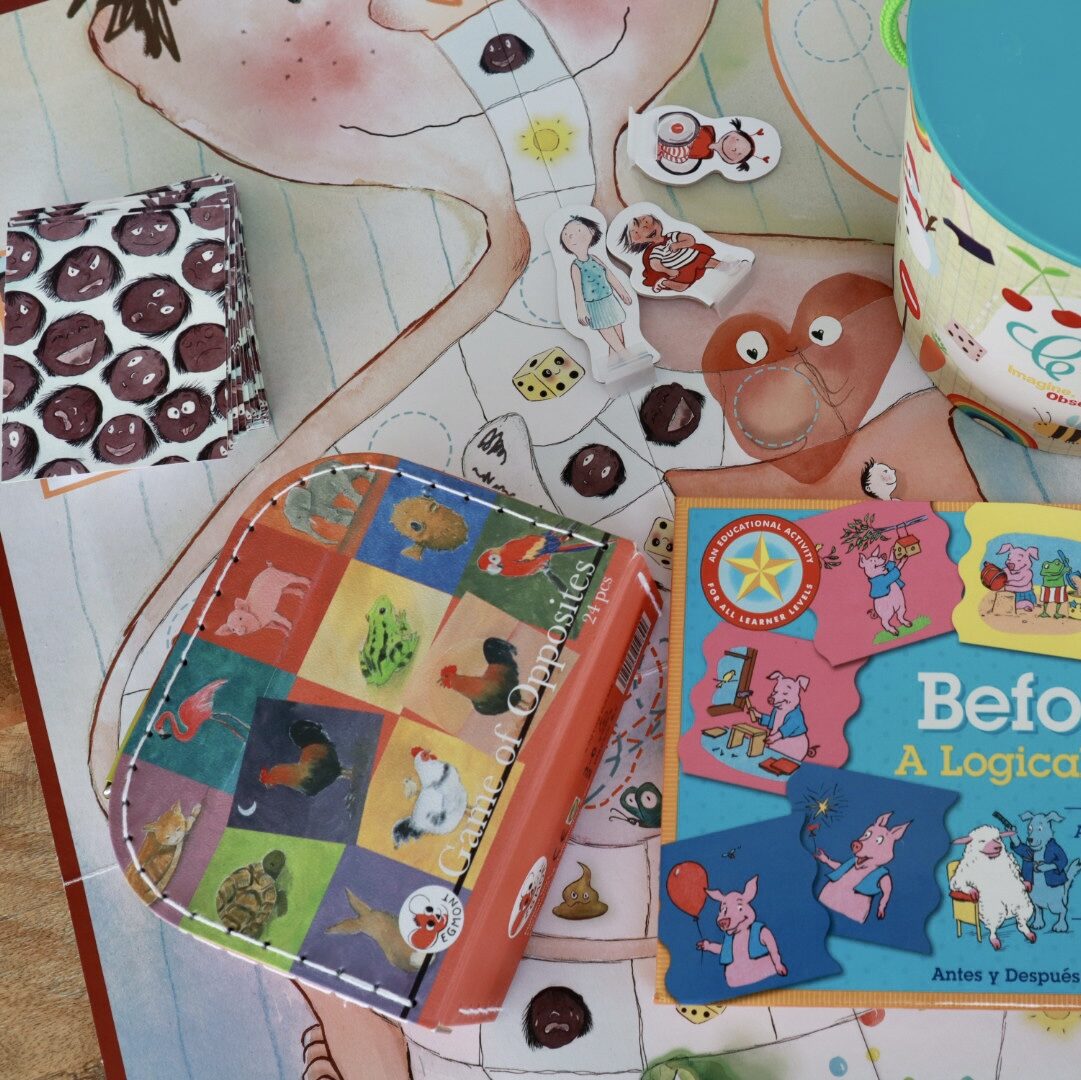
Leave a Reply